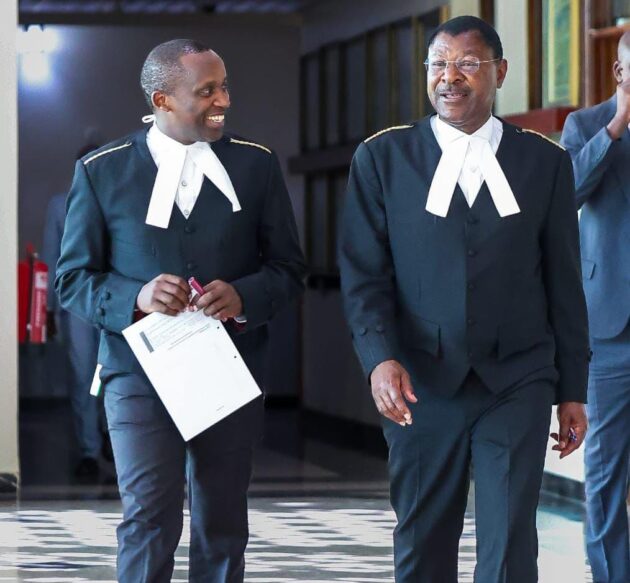
NA Clerk Njoroge rejects Grassroot Oversight Initiative’s bid to initiate motion against Wetangula » Capital News
Nairobi, Kenya, Feb 7 – The National Assembly has dismissed a proposed impeachment attempt against Speaker Moses Wetangula, citing procedural and constitutional limitations.
National Assembly Clerk Samuel Njoroge stated that neither the personal conduct of the President, the Speaker, judges, nor other judicial officers can be debated in Parliament unless raised through a substantive motion by a member with at least three days notice.
“Only a Member who is aggrieved by the conduct of the Speaker can move the House to discuss the conduct complained of by way of a substantive Motion,” the Clerk stated.
In response to a letter dated February 6, 2025, from the Grassroot Oversight Initiative, the Clerk noted that all petitions to the National Assembly must adhere to the Constitution, the Petition to Parliament (Procedure) Act, 2012, and the National Assembly Standing Orders.
Referring to Standing Order 87(1), the Clerk deemed the claim by the Grassroot Oversight Initiative inadmissible, effectively blocking the proposed motion from proceeding further in Parliament.
The Grassroot Oversight Initiative, which had sought to challenge the Speaker’s conduct, is yet to respond to the National Assembly’s decision.
Wetangula has been in the spotlight for a week now with his reputation as National Assembly speaker being questioned after the High Court overruled his ruling deeming the Kenya Kwanza Alliance as the majority coalition in the house.
The opposition coalition threatened to impeach Wetangula over alleged impartiality in his ruling, which contradicted a High Court decision declaring the Azimio coalition as the majority in Parliament.
Minority Leader Junet Mohamed criticized Wetangula’s handling of the matter, accusing him of inconsistencies regarding the status of 14 MPs who defected from Azimio after signing post-election agreements with Kenya Kwanza.
“When he made his first ruling, which was overturned by the court, he claimed the 14 members were part of Kenya Kwanza. Now, he says they are in political limbo—neither in Azimio nor Kenya Kwanza. This is a deliberate manipulation of numbers to ensure Kenya Kwanza remains the majority,” Junet said.
The Suna East MP also questioned why the Jubilee Party was now being considered part of Azimio, despite Wetang’ula’s previous ruling stating that the party had defected to Kenya Kwanza.
“We have always maintained that Jubilee is still part of Azimio, yet today he says the party is in Azimio. This ruling is full of contradictions and will be overturned in court, just like the previous one. Parliament is not immune to constitutional interpretation by the courts—it is not a court of appeal,” he added.
The opposition also took issue with Deputy Speaker Gladys Boss for writing to the Registrar of Political Parties to seek details on post-election agreements, questioning her motives.
“It’s going to be messy and noisy, and there will be casualties, I can promise you. The way Parliament is being handled is alarming. While we see broad-based governance in the Executive, Parliament is becoming one-sided,” Junet warned.
Minority Whip Millie Odhiambo reiterated that political agreements must be guided by the law and accused the Speaker of deliberately suppressing Azimio’s numbers.
“The 14 members who are supposedly in a political vacuum have done so to deny Azimio its rightful majority. Despite shifting political alliances, legal frameworks must be respected,” she stated.
Wetangula upheld the Kenya Kwanza Alliance as the majority coalition in the National Assembly in a fresh declaration following the High Court decision nullifying his initial declaration.
In his ruling on the implications of the court decision on House proceedings, the Speaker cited post-election agreements filed with the Registrar of Political Parties as a key factor in determining the majority status.